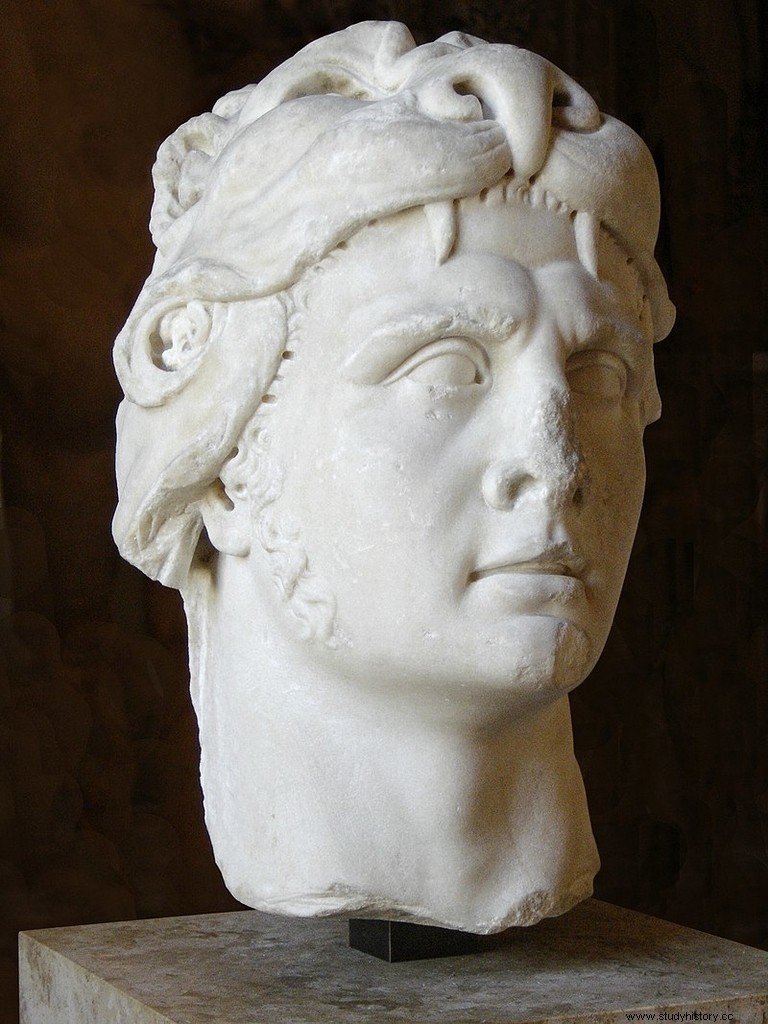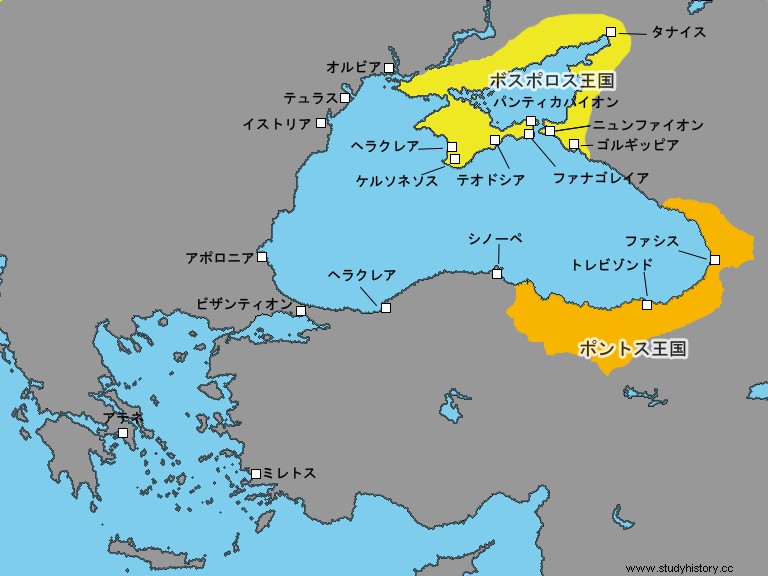 Yamakawa's textbooks and glossaries mention "Mitridates Rebellion". Since Mitridates was not enslaved to Rome in the first place, it would be better to call it the Mitridates War.
Yamakawa's textbooks and glossaries mention "Mitridates Rebellion". Since Mitridates was not enslaved to Rome in the first place, it would be better to call it the Mitridates War.
This time, let's take a look at the Mitridates War, in which the Greek and Roman worlds directly collided.
Half-life of Mitridatesmanu
I don't think the name "Alexander the Great" feels strange, but I think the name "John the Great", for example, feels strange.
Since the word for the great king is not King but Manu, Charlemagne that appears later will also be called Charlemagne or Charles Manu.
It seems that Mitridates himself imitated Alexander the Great and called himself Mitridatesmanu.
The influence of Mitridates in the Greek world is tremendous, and it can be said that the champion of the Greek world in the 1st century BC is this Mitridates.
Childhood whose life was targeted by his mother
Mithridates VI was born in the land of Pontus as a child of Mithridates V, so to speak, a natural king.
The Kingdom of Pontus is a country in Asia Minor facing the Black Sea, and it can be said that it is a land that has inherited the Greek culture since Alexander, and it can be said that it was higher than Rome at the cultural level.

Laodice, the mother of Mithridates VI, is a well-educated woman, and Mithridates VI was also an English name from an early age.
His father, Mithridates V, died when he was 12 years old, and he would take over, but perhaps because he was young, his mother, Laodice, took over the politics of the kingdom.
It's a common story so far, but according to folklore, after wandering in the wilderness for several years after being targeted by his mother, he overthrew his mother and became king in both name and reality.
There is an episode that I personally think is true.
Even if there are a large number of parents killed by children in the east and west, there is no example in world history of a son killed by a mother. Although there is a boy who kills his mother like Nero.
Anyway, Mioridates, who took the throne, reveals his ambitions.
As soon as the invasion of neighboring countries began, they were suppressed, and the Mitridates War began when a conflict with the Roman ally Butinia arose.
First Mithridatic War
On the Roman side, it means that the ally Butinia was attacked and sent troops to Greece, but there is also an opinion that this was made to provoke Rome in the first place.
According to the Roman side, Mithridates VI murdered 80,000 Roman citizens living in Asia Minor.
I don't know which one is more credible, but it is true that there was a war between Rome and Mitridates.
This can be said to be a battle between Rome and Greece, and can be seen as a battle for hegemony in Asia Minor and the Greek world.
In conclusion, it was an overwhelming victory for Rome.
It was an overwhelming victory with a difference that couldn't be matched.
Well, the other party was also bad. Mithridates VI fought against Sulla, one of the five most famous commanders in Roman history.
Still, the difference was overwhelming, with the Greek side suffering 10,000 units of damage, while Rome was almost unharmed.
This shows that the Roman world overwhelms the Greek world militarily, and it can be said that it was the strength of Rome that absorbed the tactics devised by Hannibal in the Punic Wars.
In terms of troops, the Mitridates side was close to 100,000, and the Roman side was about 30,000.
Moreover, Sulla was in a state where rival Marius occupied Rome and became a thief army at this time, and could not receive satisfactory supply.
The war ended with the peace treaty of Dardanus, and Mitridates should have been quiet here ...
Second Mithridatic War
When Sulla signed a peace treaty, he left the Greek region to Murena and marched himself to Rome.
Mitridates thought he could win without Sulla, and started a war with Murena. And he would have won without Sulla.
I succeeded in getting Cappadocia as a result of this war ...
Third Mithridatic War
Sulla is dead.
Only about one commander appears in 100 years.
I don't know if he thought so, but King Mithridates VI of Pontus began an invasion of Roman Butinia to become the champion of the Greek world.
The commander on the Roman side was Lucullus, who is also the confidant of Sulla, and at first he was in the favor of Lucullus, but eventually the battle situation was in favor of Mitridates, and the battle was prolonged.
The Senate, who had boiled down the business, dismissed Luxle and instead sent Pompey, a young genius commander who had just settled Spain, to Greece.
Waiting for Mithridates VI, who would have thought that without Sulla, would be anything, was a talented person who surpassed even Sulla.
Pompey is actually defeated only once. Even once, the opponent is Caesar, a world historical hero.
Mitridates is also unlucky, but Pompey is also unlucky. It can be said that in the era called the first century of the internal turmoil, Sulla, Pompey, Caesar and other commanders with strong strength in world history appeared one after another.
There was no way Mitridates could beat such a genius, and after all, there was a betrayal of his son, and in the end he died himself.
Mithridates VI, who has the impression that he has just lost, was unrivaled against neighboring countries, and was originally quite strong because he had defeated an average commander in Rome.
His bad luck would have been born at the same time as the non-excellent commanders such as Sulla and Pompey.
The man who killed his mother is finally betrayed by his son.
This may also be a causal response.
